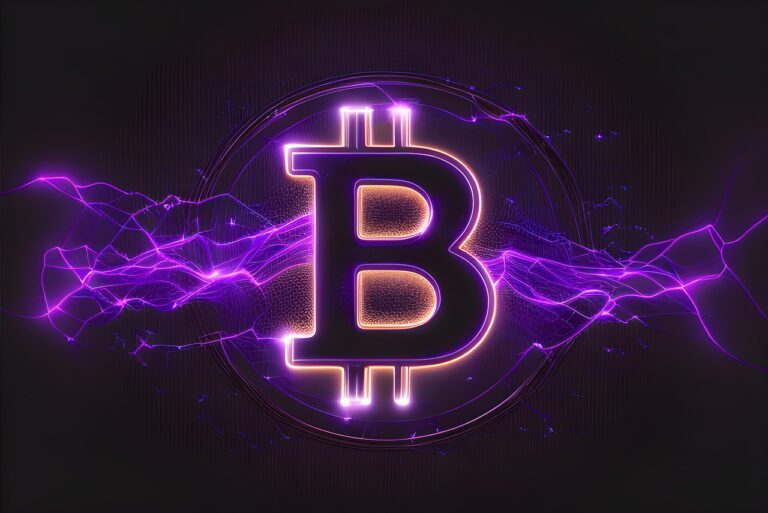Bitcoin’s Lightning Network (LN) is a layer-2 scaling solution built atop the Bitcoin blockchain. It aims to address Bitcoin’s limitations in transaction speed and costs, particularly for frequent, small-value payments. The LN achieves this by facilitating off-chain transactions through a network of peer-to-peer payment channels. Participants in the LN establish payment channels by locking a predetermined amount of Bitcoin into a multi-signature smart contract on the main blockchain. Once a channel is open, parties can transact with each other near-instantly, with negligible fees. These transactions are not broadcast to the Bitcoin blockchain; instead, only the channel’s net balance change is updated. When the channel is closed, the final balance is settled on the Bitcoin blockchain.
The LN offers several key advantages. It significantly enhances transaction speeds, allowing for near-instant settlement compared to the block confirmation times of the Bitcoin network. Fees on the LN are drastically lower than on-chain Bitcoin transactions, making micropayments economically feasible. Additionally, by handling transactions off-chain, the LN alleviates congestion on the main Bitcoin network, boosting its overall throughput.
While not universally supported, a growing number of prominent cryptocurrency exchanges, including Kraken and Bitfinex, have integrated the Lightning Network, enabling faster and cheaper Bitcoin deposits and withdrawals. Well, today, finally, Coinbase announced that it was “rolling out support for the Lightning Network.”
In its blog post, Coinbase said that it had integrated the Lightning Network to significantly improve Bitcoin transactions. Coinbase mentioned that their motivation was to address the inefficiencies in the global payments system, which is often criticized for being slow and costly. In 2022, Coinbase claims that U.S. consumers alone faced an estimated $75 billion in credit card transaction fees, with many transactions taking days to clear. In contrast, blockchain technology, as leveraged by Coinbase, enables faster, more secure payments at considerably lower costs.
Historically, Bitcoin transfers on Coinbase were processed on-chain, which could take anywhere from 10 minutes to two hours and incur high fees. The Lightning Network changes this landscape by facilitating instant off-chain Bitcoin transfers at a fraction of the cost.
Since its inception in 2017, the Lightning Network has seen steady growth and increasing demand among users. Coinbase’s latest move allows customers to send, receive, or pay with Bitcoin instantly via the Lightning Network directly from their accounts. This integration not only enhances the user experience by reducing transaction times and costs but also bolsters Bitcoin’s everyday utility. However, it’s important to note that Coinbase’s Lightning Network integration is not available in all regions, and the cost advantages may not apply to all types of transfers.
Featured Image via Pixabay









